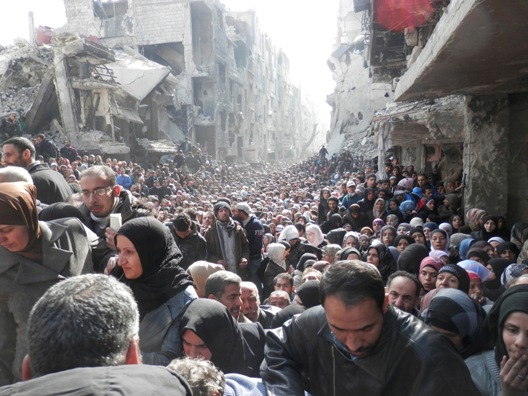 From its outset, the self-immolation of a crestfallen Tunisian vegetable vendor, the Arab Spring was largely about poverty. Mohamed Bouazizi’s final words before igniting himself and the region were, “How do you expect me to make a living?”
From its outset, the self-immolation of a crestfallen Tunisian vegetable vendor, the Arab Spring was largely about poverty. Mohamed Bouazizi’s final words before igniting himself and the region were, “How do you expect me to make a living?”
As citizens across the Arab world connected their dismal material prospects to stagnant, exclusivist politics—governments fell. While it was a process that invited turmoil, it was justified as necessary but also temporary.
The former may have proven true, but the latter has not. Discord continues to characterize the region and skepticism toward the Arab Spring is becoming more prevalent. Meanwhile, respectable news sources summarize the phenomenon with bold proclamations like “The Tragedy of the Arabs.”
In the Middle East, turmoil is frequently explained as a product of sectarianism, but the trans-sectarian reality of poverty encapsulated in Mohamed Bouazizi’s desperate plea continues to drive the trajectory of the region.
In Tunisia, boasting arguably the most successful transition, the memory of Bouazizi lingers as politicians publically express poverty reduction as their chief mandate. Similarly in Egypt, it is now the chief performance benchmark for the presidency of a formal general schooled in securing the country, not boosting the median income.
Most significantly, poverty is an underlying factor in the broader regional struggle with extremism. ISIS’s gains in eastern Syria and western Iraq cannot be understood outside the context of locals disillusioned with their material realities.
In Syria, ISIS now possesses a stronghold in the Raqqa governorate. Not surprisingly, it is one of the poorest in the country, hit particularly hard by a brutal pre-war drought. As the New York Times recently documented, the semblance of normalcy ISIS has established within its Raqqa jurisdiction is now attracting war weary Syrians eager to earn a living anywhere they can find stability and basic governance.
In Iraq, the poverty-extremism connection took shape when materially deprived Sunni tribes in Anbar province allied with the force they had been paid to hold back (ISIS) as soon as the central government’s much needed financial compensation discontinued. Similarly in Jordan, support for ISIS has thrived in neglected, impoverished rural cities like Maan where unemployment tops 25 percent.
In the Sinai Peninsula and Yemen’s remote villages, poverty continues to fuel radicalism among jihadi groups bent on destabilizing central governments and attacking foreigners. The new governments of these countries seek arms and apaches from militarized allies, development initiatives among impoverished Bedouin communities susceptible to radicalism a secondary concern.
Meanwhile in the Gaza Strip, experts of all walks have noted the strong correlation between the conditions of the territory and the tactics of Hamas. Shmuel Zakai, retired commander of the IDF’s Gaza Division, recently questioned policy toward the strip stating, “You cannot just land blows, leave the Palestinians in Gaza in the economic distress they are in and expect Hamas just to sit around and do nothing.”
In 2008, Susan Rice wrote in a Brookings publication, “Among the most significant consequences of country-level poverty is a heightened risk of conflict.” The modern Middle East may validate this claim. Skimming through the list of nations with GDPs per capita of less than 10,000 USD, five of the ten (Egypt, Iraq, Syria, Sudan, and Yemen) have experienced significant internal conflict or civil war within the last three years.
While the Middle East holds a reputation as the graveyard of predictions, it is reasonable to forecast that a sustainable regional movement toward stability cannot occur absent an answer to Mohamed Bouazizi’s question.
Matthew Timmerman is a Syria relief professional based in Washington, DC.
Image: Residents wait to receive food aid distributed by the UN Relief and Works Agency (UNRWA) at the besieged al-Yarmouk camp, south of Damascus on January 31, 2014. (Photo: REUTERS/UNRWA)
